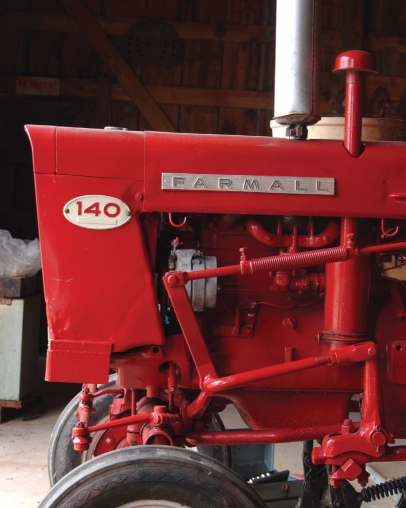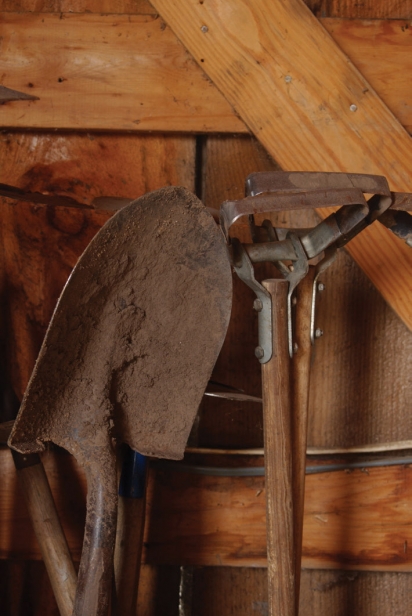The Power of Local Food
Editor’s note: This is an updated version of the essay LeVan wrote for edibleASPEN’s premiere issue.
When it comes to food, many of us don’t take the same care in choosing what we buy and eat as we would a new car or our next elected government official. We might look for color and ripeness, but most of us don’t think much about what we’re supporting when we choose food for tonight’s dinner.
Let’s face it: We’re putting up with a deliriously boring lack of flavor in the foods available in our stores. You know this produce—these are fruits and vegetables bred for their attractive color, longer shelf life and their superior ability to be mechanically harvested. They’re not grown for reasons having to do with the nutrition or flavor they might pass onto consumers.
We all, at one time or another, have a taste memory like that of a late-summer tomato. Eaten like an apple, its juices seeping into every taste bud, our bodies shouting a resounding, “Yes!” What happened to that flavor? I want it back, at least seasonally, whenever I can get it.
When was the last time you asked your local grocer about the farm that cultivated the food you buy or how it was grown? We don’t question how the animals that produce our meat, eggs and dairy products are raised. We don’t ask how many miles ingredients have traveled (meaning, the carbon footprint and greenhouse gas emissions related to shipping) or how our spinach is washed. Until, that is, someone contracts a foodborne illness and the media brings it to our attention and hysteria sets in.
What all this brings up for me is, each of us has influence. We have a vote, the power of our purchasing dollar, and we’re not taking advantage of these things in order to stimulate positive change, positive flavor.
“You are what you eat” still rings true. The same molecules that make up the food we eat and feed our children, family and friends become the molecules of our minds and bodies. The food we choose has an impact upon the people who grow, raise and harvest it, and on the planet. In other words, you can choose to further the intelligence, health, and well-being of yourself and the people you care about by what you choose to buy. So, unless you grow your own food and know where it comes from, you should choose your farmer as carefully as you select your family doctor.
What this translates to when you go to the grocery store or decide, better yet, to buy from a local farmer or rancher, is that you have a vote, every time you spend money. Combined with other consumers making the same choices, your actions are the driving force to stop the overuse of damaging products such as pesticides and herbicides. Your vote can encourage companies and farmers to change their methods to more benign, or even beneficial, practices.
Your food dollar vote affects choice by encouraging diverse regional varieties to be grown and made available in local markets. What we buy also affects whether our surrounding landscapes are preserved as working local farms, or are turned into suburban cul-de-sacs. Ultimately, our choices at the cash register have a lot to do with determining the health of our communities and our planet’s air, water and soil.
If we choose to eat meat, we can opt to purchase it from one of our local producers: We have farms and ranches to support and save right here in the Valley and on the Western Slope. The farmers and ranchers who have survived the onslaught of development would love to have your business.
American consumers have gained power over the last 30 years. When we decided to eat organic, the giant corporations that dominate the food system got the message and responded. They listen when there’s money to be made. Now, it’s time for us to take the next step. It’s time we reclaim the homegrown pleasures we once knew. We need to let local farmers know we support them and show the powers that be that supporting our foodshed is what we want.
Remember: The market is a commons. It does not belong to the companies. It is ours. It is for all of us. So, let’s take back the market! It’s time to exercise our vote. When it comes to spending your money for food, first inform yourself by asking the basic and simple questions: “Who grew this? Where is it from? How was it raised?” Write your local, state and federal representatives about food security issues, and vote close to home. Buy local first, next choose sustainably produced and third look for organic.
As we turn up the volume, businesses will listen. Only then, will we taste the sweet return of flavor and once again have choice. We’ll be actively participating in building a healthy place to live, one delicious bite at a time.







